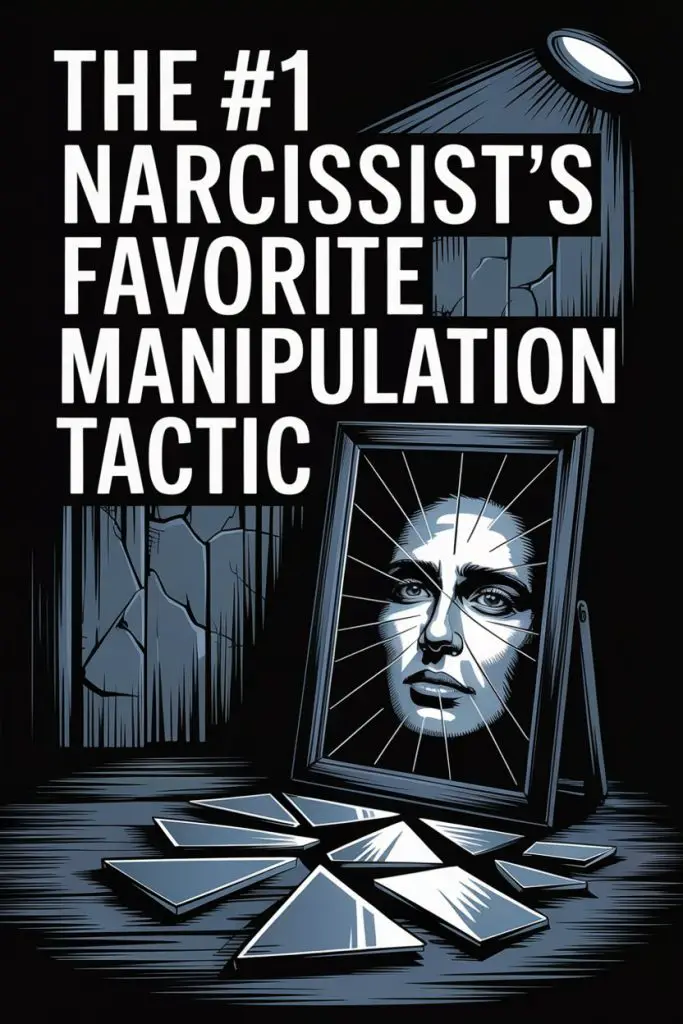Narcissists have a whole bag of tricks, but one stands head and shoulders (and ego) above the rest.
If you’ve ever found yourself feeling like you’re stuck on a merry-go-round of confusion, you’re not alone—and you’re not losing your mind. Welcome to the twisted, topsy-turvy universe of gaslighting, the narcissist’s gold-medal move.
Gaslighting: The Crown Jewel of Narcissistic Manipulation
Gaslighting is less about lighting actual gas lamps and more about leaving you doubting every thought, feeling, and memory you have. It’s psychological warfare—disguised as “I’m just being honest” or “You’re remembering it wrong.”
By the time you notice you’re being gaslit, you’re already halfway convinced it’s all your fault. That, dear reader, is the magic trick narcissists have been perfecting for centuries.
How Gaslighting Works (Spoiler: It’s Subtler Than You Think)
Narcissists don’t usually stand in the kitchen screaming, “You’re insane!” at the top of their lungs. The real art of gaslighting is much quieter—and more persistent.
It might slip in as a passing comment:
“Are you sure that’s what happened? You always get confused.”
“I never said that. You must be imagining things.”
“Everyone else thinks you’re overreacting too.”
Bit by bit, these phrases chip away at your confidence. The narcissist isn’t interested in a fair fight. They want you second-guessing yourself until you trust their version of reality over your own.
Spotting the Early Signs
Gaslighting doesn’t come with a neon sign. It creeps in on tiptoe, often disguised as concern or reasonable disagreement.
Ever feel like you’re apologizing for things you didn’t do? Or find yourself replaying conversations, desperately trying to remember who said what? Maybe you’ve even started to believe you’re too sensitive or dramatic.
Congratulations, you might be on the guest list for the narcissist’s gaslighting gala.
Watch for:
- Constant denial of facts
- Dismissal of your feelings (“You’re too emotional”)
- Twisting of events (“That’s not how it happened at all”)
- Isolating you from friends or family who back you up
A narcissist knows that if they control your sense of reality, they control everything.
Why Gaslighting Works So Well
If you’re thinking, “Why do I fall for this?”—cut yourself some slack. The very nature of gaslighting is to make you doubt your instincts.
Narcissists are experts at blending just enough truth with their lies to keep you hooked.
Add in a few love bombs (“No one understands me like you do!”) and the occasional apology (“I was just stressed—a bad day at work”), and you’ll find yourself clinging to these crumbs of affection, convinced that things can go back to how they were.
Here’s the kicker: most people want to trust the ones they love. Narcissists weaponize your goodwill, your trust, and your hope, spinning them into a web you can’t easily untangle.
Classic Gaslighting Phrases and What They Really Mean
If you’ve ever felt like you’re living in a parallel universe, check out these classic lines straight from the narcissist’s playbook:
“You’re making a big deal out of nothing.” (Translation: I’ll decide what matters.)
“I never said that.” (Translation: Your memory is faulty, not me.)
“Why are you always so paranoid?” (Translation: Stop noticing my shady behavior.)
“Everyone agrees with me, not you.” (Translation: You’re alone, and I want you to feel it.)
Each one is designed to keep you off balance, scrambling for their approval.
How to Respond When Gaslighting Starts
Easier said than done, right? But here’s the truth: you don’t have to win the argument to win your sanity back.
Keep a written record of conversations, agreements, and patterns. Journals or notes on your phone are lifesavers when your memory gets called into question. Screenshot texts or emails—think of it as keeping receipts.
Practice “grey rocking”—offering boring, noncommittal responses when a narcissist tries to bait you. Think: “Hmm,” “I see,” or even the classic British, “Interesting.”
Most powerful of all: trust your gut. If something feels off, it probably is. Your instincts are not the enemy.
The Role of Isolation in Gaslighting
A narcissist’s gaslighting campaign often goes hand-in-hand with isolation. The fewer outside voices you have, the easier it is for them to set the narrative.
You might notice:
- Subtle digs at your friends or family (“She’s always been jealous of us”)
- Reluctance to let you spend time alone
- Pushing you to keep secrets (“Don’t tell anyone—I knew you wouldn’t understand”)
If your world starts to shrink, it’s not an accident. It’s a strategy.
Small Steps to Reclaim Your Reality
Ready for some good news? Gaslighting loses power the moment you trust your own perception more than their version of events.
Try these tonight:
- Say your truth out loud, even if it’s just to yourself in the shower
- Reach out to someone you trust—share your doubts, your confusion, your story
- Remind yourself: confusion and self-doubt aren’t your natural state; they’re symptoms of manipulation
It’s not about catching the narcissist red-handed. It’s about getting your balance back on solid ground.
Restoring Your Confidence
Gaslighting is designed to make you question your every move. The cure? Rebuilding your self-trust, brick by brick.
Affirm your own memories. Stand by your emotional responses. If you’re hurt, you’re hurt—no amount of spin can invalidate that.
Small acts of self-care matter. Take a brisk walk, phone a mate, try journaling your experiences—each helps stitch your reality back together.
And if you slip and doubt yourself? That’s normal. Self-trust is a muscle, and it gets stronger with practice.
When to Seek Help
Gaslighting, over time, can chip away at your mental health. Anxiety, depression, and chronic self-doubt don’t just sprout out of nowhere.
If you’re stuck in a loop, or struggling to distinguish reality from fiction, a professional can help you untangle the mess. Even one supportive conversation can be a lifeline.
Plenty of folks only realize the full extent of gaslighting after talking it through with someone outside the relationship.
Therapy, support groups, or even a wise old auntie with a flair for brutal honesty—sometimes, you need an extra pair of eyes on the puzzle.
You’re Not Alone—and You’re Not Broken
Gaslighting is the narcissist’s ultimate party trick, but you don’t have to be their audience forever.
Remember, trust in your own instincts is a skill that’s always yours to reclaim. There’s no shame in falling for manipulation—only strength in deciding you want better.
Every time you assert your reality, you chip away at the narcissist’s power and reclaim a bit of your own freedom.
Nobody gets to rewrite your story but you. And isn’t that the best twist of all?


